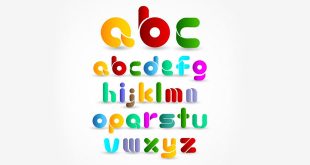Homophones In Sentences
- “In matters of principle, the deans and principal of the school set the guidelines for teachers and students”.
- Use the brake to stop the car – The dish did not break when it was dropped.
- I will buy a book at the store – We walked by the school.
- The capital is the largest city in the state – Is her office in the Capitol building?
- We had fair weather for the flight – Do you have cab fare to the airport?
- We had a chance to win – we will sing a few chants.
- Come, we will play deuce – The dues must be paid at once.
- I could not bear the torture – He stood outside, completely bare.
Commonly Used Homophones
Some homophones, which we do not use in everyday language, aren’t the ones that concern us. It is the words that are common which create confusion. Words like ‘principal/principle’, ‘freeze/frees’ and ‘phase/faze’ are the ones that confound us thoroughly. Let us have a close look at the most commonly used homophones.
- Acetic – Contains acetic acid or vinegar Ascetic – A person who leads a life of self-discipline and self-denial
- Days – Plural of ‘day’. Daze – Bewildered state
- Chord – Musical notes Cord – A stretchy material used to bind, tie, connect and support.
- Eye – A human organ Aye – An affirmative voter I – Used to refer to oneself
- Axe – A sharp hand tool used to cut trees Acts – The process of doing something
- Axle – A supporting duct on which a wheel or a set of wheels revolve Axil – The upper angle connecting a lateral organ, such as leafstalk.
- Caret – A symbol indicating a proposed insertion in written or printed text Carrot – A vegetable Carot – A unit of weight for precious stones and pearls
- Cask – A barrel Casque – A helmet
- Deuce – A tie-score in tennis Dues – Something owed as a debt
- Facts – The truth Fax – A printed paper delivered by a fax machine
- Presence – The state of being present Presents – Gifts
- Tense – A state of nervousness and tension; Grammar concept Tents – A shelter made of canvas Tens – A medical technique
- Discreet – Tactful Discrete – Detached
- Threw – Past tense of throw Through – In the midst of
- Root – Starting place Route – Direction, course
- Analyst – Forecaster, one who analyses Annalist – Person who writes annals
- Ascent – The process of going upwards Assent – Consent
- Bear – to tolerate something Bare – Naked, without clothing
- Billed – Past tense of ‘to bill’ Build – To construct
- Buy – To purchase By – A preposition Bye – Farewell
- Chance – Possibility Chants – A simple song or melody
- Coarse – Rough Course – A specific subject studied
- Creek – A small stream Creak – To make a high-pitched sound
- Dear – Beloved Deer – An animal
- Navel – Belly button (scar in the centre of the abdomen after the umbilical cord is cut) Naval – Related to navy
Homophones Vary As Per Accents
- Accents can also make homophones out of two words. Not all dictionaries say that pronunciation has to be identical for two words to be homophones. The word ‘insight’ is a noun and has accent on the first syllable while the word ‘incite’ is a verb which has accent on the second and final syllable.
- Homophones differ as per the region too. For some speakers of English language, the words, ‘merry’, ‘marry’ and ‘Mary’ are homophones while for others, they are just words in which the vowels possess three different pronunciations.
- In some accents, different sounds merge making the word indistinctive. Thus, those words which maintain that distinction are homophonous as in the case of ‘Pin’ and ‘pen’ in southern American accents.
- The words ‘do-due’ and ‘forward-foreword’ are homophonous in American accents, but not in British accents.
- The words ‘talk’, ‘torque’, and ‘court’ and ‘caught’ are distinguished in Rhotic accents in Scottish English and in few accents of American English, but are homophones in non-rhotic accents such as British English.
Identification of homophones is very important. It is also key, while identifying homophones, that spelling variants will not make homophones which is obvious in the words ‘yoghurt’ and ‘yogurt’ in which the same thing is spelled in two different ways. The same rule is applied for ‘cookie’ and ‘cooky’. This is also true for words which have multiple meanings but are considered to be a single word.
 Class Notes NCERT Solutions for CBSE Students
Class Notes NCERT Solutions for CBSE Students


